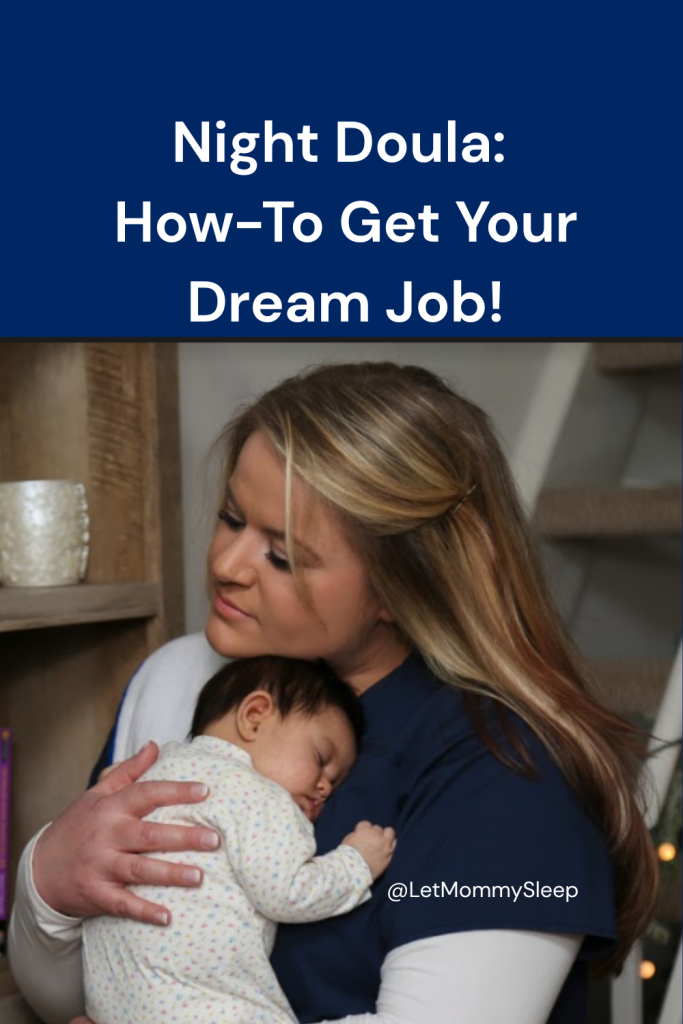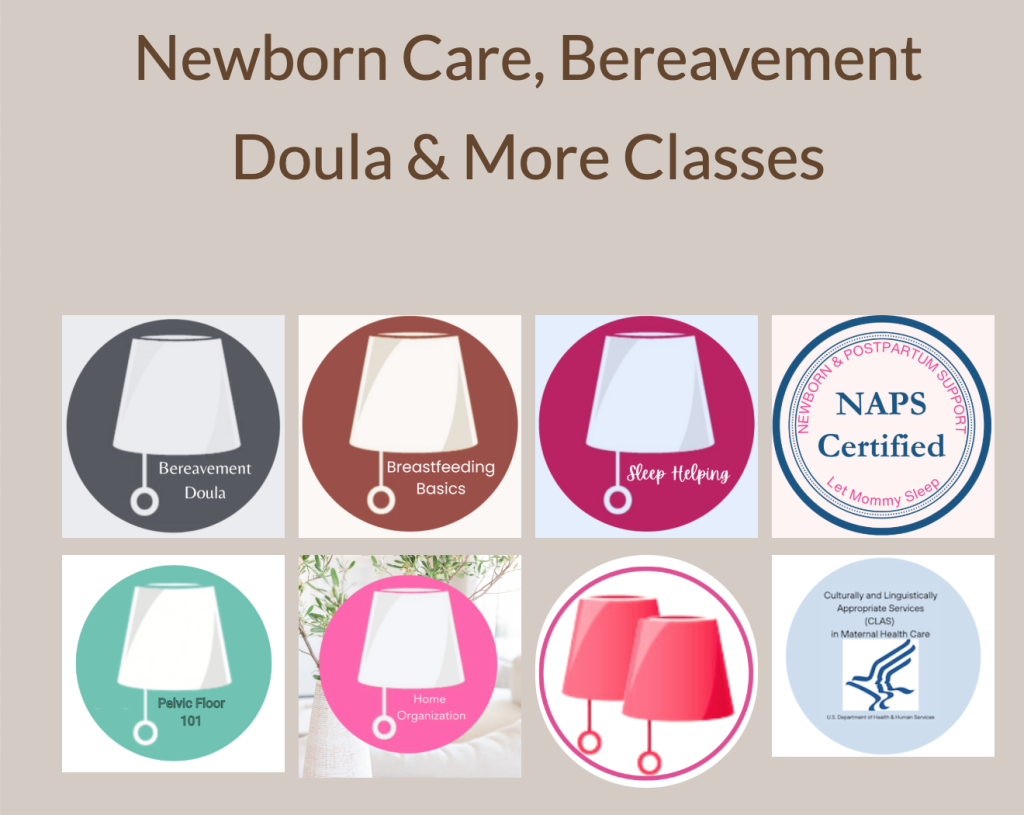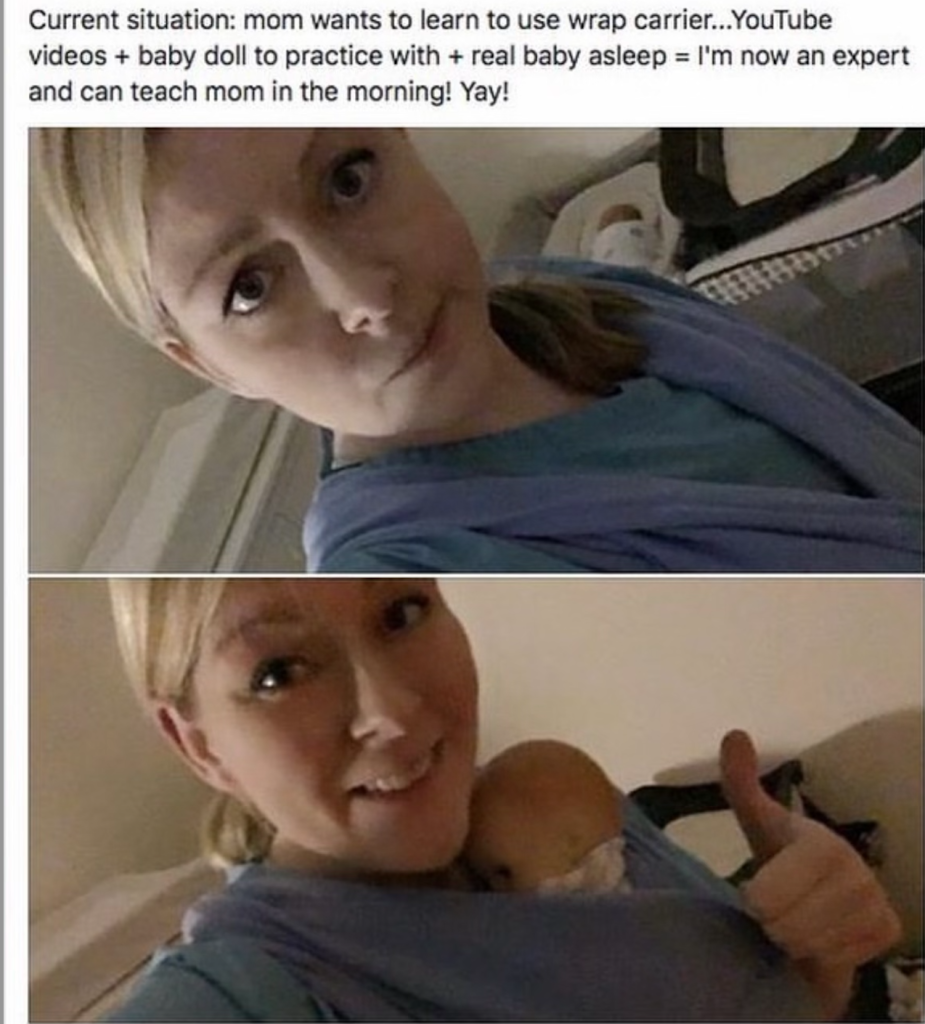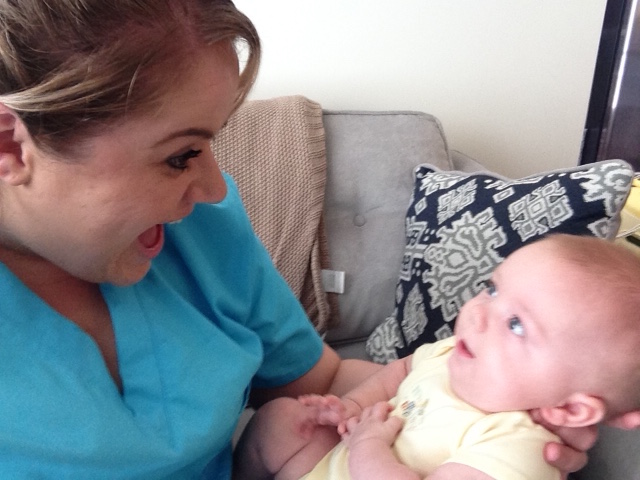Night Nanny or Postpartum Doula: How-To Get Your Dream Job!
updated, Oct 10, 2025 – For over 15 years, Let Mommy Sleep has cared for newborns and their families while also supporting caregivers who want to build a career in newborn care. Working as a Night Nanny or Postpartum Doula, sometimes called a newborn care provider or night doula, can be one of the most rewarding jobs in childcare.
If you’re interested in becoming a night nanny or postpartum doula, here’s what you need to know about the role, the skills required, and how to work with Let Mommy Sleep.

What Does a Night Nanny Do?
A night nanny’s primary role is to care for newborns overnight, allowing parents to rest and recover. Typical responsibilities include:
- Feeding the baby (or bringing the baby to a breastfeeding parent and assisting with positioning)
- Burping, soothing, and swaddling the baby back to sleep
- Diaper changes and monitoring comfort
- Tracking feeding, sleep, and diapering schedules
- Sharing evidence-based newborn care guidance with parents
- Helping with an age-appropriate schedule, therefore helping babies sleep longer stretches overnight
- Aid in postpartum recovery by offering support to both parents
While the main focus is on caring for baby, night nannies also support parents’ health and well-being by giving them the chance to get restorative sleep. Sleep is linked to better mental health outcomes, physical recuperation and overall health. Learn how a doula supports parents in Sleep Deprivation and Postpartum Depression: Proven Tips to Help
You can also read more about a night doula’s role in What’s a Night Nanny? Roles, Benefits, Costs and How They Help Families.
Night Nanny vs. Postpartum Doula
Though sometimes the roles overlap, there are key differences:
- Postpartum Doulas typically work during the day. In addition to newborn care, they may cook, help with older siblings or handle household tasks. Their focus is on supporting the entire household.
- Night Nannies/Night Doulas work overnight, ensuring babies are fed and soothed. The emphasis is on newborn care but postpartum support such as lactation assistance is also a part of the role. You might hear this job called “baby nurse” but remember that “nurse” is a protected title.
As the Doulas of North America (DONA) website says, Postpartum doulas understand what everyone needs, and part of their role is to help the entire family adjust and settle in. Nannies also work during the day; here’s a more detailed look at Daytime Nanny and A Night Nurse: Unique Differences.
Night Nanny or Postpartum Doula: Training and Qualifications
To become a night nanny or postpartum doula, experience and education both matter.
- Hands-on baby care experience – Comfort with newborns comes from working directly with them. This can be gained through parenting, nannying, daycare work or shadowing a current caregiver.
- Certification – Online programs such as the Newborn and Postpartum Support (NAPS) course are highly recommended. These cover infant safety, SIDS prevention, feeding, and sleep expectations, and list you on the National Night Doula Registry.
- Continuing education – Stay current with CPR, safe sleep guidelines, and newborn care. Specialized classes in twin care, lactation or bereavement can make you stand out.
- Vaccinations – Families want reassurance that their newborn caregivers are up to date on recommended vaccines, including TDaP, MMR, flu, and COVID.
We understand people can have big feeling when it comes to vaccinations. The facts remain that one way to protect newborns is to ensure that all of those caring for them are vaccinated.

Skills of a Great Night Nanny
There are many ways to be a great newborn caregiver! Some noteworthy skill and traits to give parents the peace of mind that their baby is in competent and caring hands are:
- Experienced and confident with infant care
- Patient and calm
- Knowledgeable in safe sleep practices
- Respectful of family preferences and routines
- Able to work independently in a family’s home overnight
The skills of a great night nanny are often seen when they care for newborn twins! Remaining calm when two babies need comforting from reflux for example shows that you’ve been in this position before and have tools to help each baby feel better.
How Much Does a Night Nanny Make?
Pay varies by location, but to compare it to known pay rates, night nannies typically earn more per hour than Certified Nursing Assistants or Home Health Aides. Rates are often on par with or higher than home health agency pay. At Let Mommy Sleep, Registered Nurses earn $30-$60 per hour depending on location, and caregivers are compensated at the high end of home health pay scales.
What It’s Like to Work at Let Mommy Sleep
Let Mommy Sleep is an evidence-based company. That means that in addition to a hands-on experience and compassionate spirit we require:
- Successful completion of the Night Doula Certificate
- We’re also Proud To Be A Cribs For Kids Safe Sleep Partner! and all newborn caregivers are Safe Sleep Ambassadors.
- vaccinations that protect infants too young to be immunized including: MMR and TDaP
- CPR and First Aide Certification
- Non-judgemental approach to breast and bottle feeding
Working with Let Mommy Sleep means joining the Industry Leaders in In-Home Care. Here’s what you can expect:
- Overnight shifts (10 pm–6 am) – You’ll diaper, feed, soothe, and track the baby’s care while also educating parents.
- Twins care – Many of our families have twins or triplets, and we specialize in helping them.
- Flexible scheduling – Work as little or as much as you like; we love our PRN staff.
- Supportive leadership – All LMS owners are Registered Nurses, Veteran Night Doulas or Postpartum Specialists.
- Continuing education – We provide evidence- based training and continuing education in newborn care.
- Opportunities for growth – Staff may teach Baby Basics classes, provide postpartum visits or do virtual visits anywhere in the US.
Caregivers often choose overnight newborn care for personal satisfaction, newborn and postpartum experience while in nursing school or the balance it offers with family life. They can also switch times they work through the year as a night nanny or postpartum doula.
Why Families Choose Night Nannies
Quality sleep after childbirth is essential. It helps parents recover physically, supports mental health by reducing the risk of postpartum mood disorders, strengthens the immune system, and allows families to be present and engaged during the day. Night nannies play a direct role in making this possible.
How to Prepare for a Career in Newborn Care
- Get certified in infant & child CPR.
- Stay current with primary sources like the American Academy of Pediatrics and the American College of Obstetricians and Gynocologists
- Volunteer, shadow, or work with newborns whenever possible.
- Continue training in lactation and postpartum and newborn care. Introducing the National NAPS Registry for Night Doulas
Don’t forget that working in overnight newborn care also means being prepared with specific items to keep yourself comfortable on night shift. Read Night Doula Essentials for some of our team’s favorites.
Apply to Work With Let Mommy Sleep
If you’re ready to begin your career as a night nanny or postpartum doula, Let Mommy Sleep invites you to apply. You’ll receive training, mentorship, and the opportunity to make a difference for families during one of the most important times of their lives. You can also visit us on Indeed and read what current and former staff have to say!

Night Nanny and Postpartum Doula FAQ
Do I need to be a nurse to be a night nanny?
No. While some licensed nurses choose to work as night nannies, the role is open to trained caregivers with newborn experience and certification. The title “nurse” is legally protected, so only licensed RNs, LPNs, or LVNs can use it professionally.
What are the typical hours for a night nanny?
Shifts are usually from 10 pm to 6 am, though schedules may vary based on family needs.
Is certification required?
Certification is not legally required to work in newborn care but it is recommended as perspective families can see that you have had some type of formal training.
How do I get newborn experience if I don’t have any yet?
Start by being a mentee to an experienced caregiver, volunteering in a church or community childcare nursery or working in a daycare with infants. Families want to see hands-on comfort with babies.
How much can I earn as a night nanny?
Rates vary across the US but pay is typically higher than CNA or home health aide rates. At Let Mommy Sleep, Registered Nurses earn $28-$60 per hour and all caregivers are paid competitively.
What’s the difference between a postpartum doula and a night nanny?
Postpartum doulas focus on household and family support during the day. This can include sibling care, cooking and household tasks. Night nannies specialize in overnight newborn care and postpartum support.
Why do families hire night nannies?
Newborn care is demanding, and parents need sleep to recover from birth, support mental health and stay present during the day for older kids or their jobs. Night doulas provide peace of mind and healthier beginnings.
When working as a night nanny or postpartum doula, families welcome you into their home during one of the most vulnerable and life-changing times of their lives: bringing home a new baby. With the right skill-set and a heart for family-centered care, you can make a positive impact on the lives of newborns and their families.

Categories
- Corporate Care & Partners
- COVID19 Archive
- En Espanol
- Expert Guides
- Hiring a Night Nanny
- Infant Safety
- Infant Sleep Hub
- Newborn Care
- Postpartum Health
- Twins & Multiples
- Work as a Night Doula
- zPost Archives
